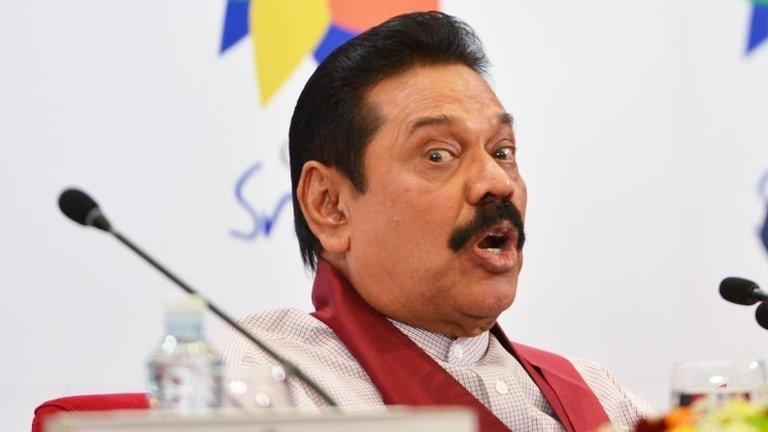Sri Lanka election: Health chief to challenge Rajapaksa
- Published
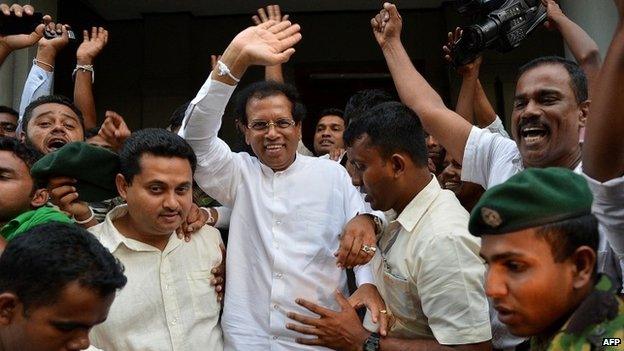
Mr Sirisena was greeted by jubilant supporters after making his announcement to stand against the president
One of the most senior figures in the Sri Lankan government has announced that he is defecting to stand against President Mahinda Rajapaksa in forthcoming presidential elections.
Correspondents say the move by Health Minister Maithripala Sirisena is a major political setback for the president ahead of the January vote.
Mr Sirisena was one of the most powerful men in the ruling party.
Five other government MPs have also announced their defections.
Rajitha Senaratne, Duminda Dissanayake, Rajiva Wijeysinghe, MKDS Gunawardena and Vasantha Senanayaka have all decided to back Mr Sirisena in the 8 January election.
He also has the backing of the main opposition UNP in the poll as well as the support of former President Chandrika Kumaratunga.
Correspondents say that Friday's dramatic developments are likely to split President Rajapaksa's Sri Lanka Freedom Party (SLFP).
The president - who secured victory over Tamil Tiger rebels in 2009 - is seeking an unprecedented third term in office after coming to power in 2005.
Compelled to stand
In a news conference, Mr Sirisena said that Sri Lanka was heading towards a dictatorship and was blighted by rampant corruption, nepotism and the breakdown of the rule of law.
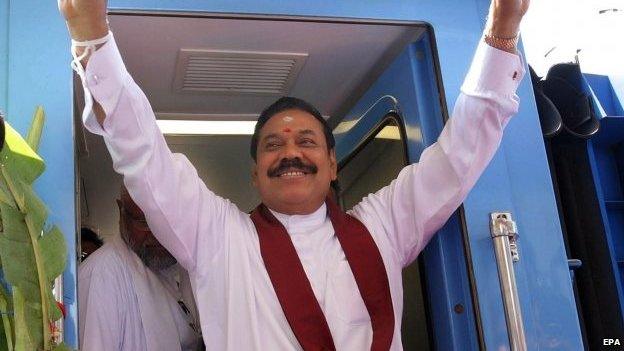
Mahinda Rajapaksa first won the presidency in 2005
He said that the president's executive powers, the deteriorating law and order situation and Sri Lanka's weakening democratic structures were all reasons that compelled him to accept the common candidate nomination.
"The entire economy and every aspect of society is controlled by one family," he said.
Parliamentary Speaker Chamal Rajapaksa, Economic Development Minister Basil Rajapaksa and the powerful Defence Secretary, Gotabhaya Rajapaksa, are all brothers of the president.
His eldest son, Namal, is a lawmaker and head of the youth wing of the president's Sri Lanka Freedom Party (SLFP).
The presidential vote will be held amid continuing international pressure over the Rajapaksa administration's human rights record.
Five years after the end of the country's civil war, the president, 69, is constantly having to fend off allegations that his troops killed 40,000 Tamil civilians in the final days of the fighting.
He also faces accusations that his government has ruthlessly suppressed dissenting voices in the media and in the judiciary.
Mr Rajapaksa, a former lawyer, argues that he is guaranteeing Sri Lanka much-needed stability after a quarter century of civil war.
- Published20 October 2014
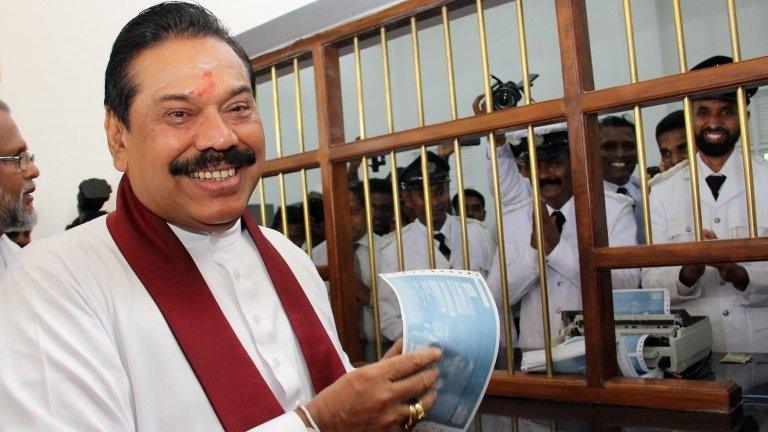
- Published4 October 2024
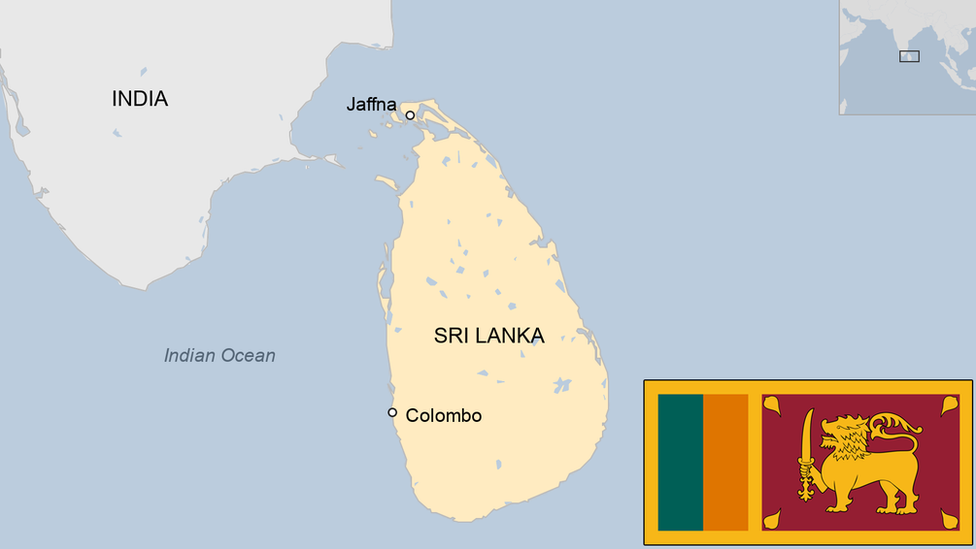
- Published21 November 2019
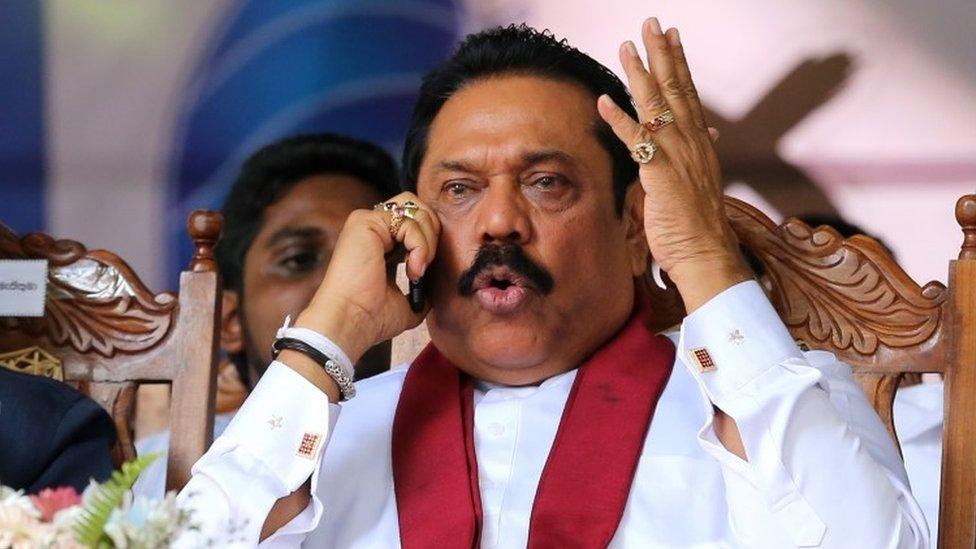
- Published16 November 2013
